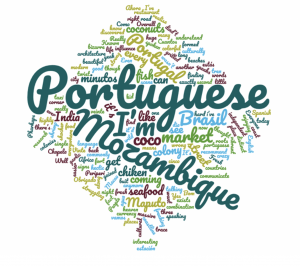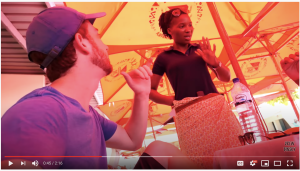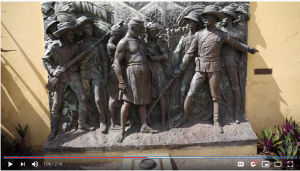This is part of our blog series. Click the links below to see the other two episodes.
A critical perspective on language use in travel vlogs (Janina)
How do you like Drew Binsky’s Top 12 Travel Tips in Africa? (Sudi)
Youtube has been a necessary part of our life. Do you want to know how Tokyo looks like? Just type “Tokyo” on Youtube. You will see tons of thousands of videos about Tokyo, I’m sure. Especially Vlog, which is a personal video about a creator’s life, has been increasing on Youtube. It is actually interesting to watch. If you watch a vlog on travel, then you can feel like you’ve actually been there. Me? How much time do I spend to watch Vlog? Don’t ask me, please. It’s classified.
However, have you thought about the influence of vlogs? It’s really easy to watch and gives us a feeling of the first-hand experience, so you might have been unconsciously affected by the bias hidden in the vlog. Even though you find millions “good” on the video, make sure, the number doesn’t tell us anything about the content itself.
So, in this blog, I’ll choose one travel vlog on Youtube and analyse what kind of message can be conveyed through the video to us! I randomly chose one vlog about Mozambique (because it is one of my favorite countries), which was uploaded by Drew Binsky, one of the most influential vloggers on Youtube. His channel got 2.17 million subscribers by the end of 2020.
(watch the full video here)
This video is short (2:16) and seems to be a harmless introductory video because he often uses a descriptive narration, puts some historical information, and plays positive background music. However, the very biased view on Mozambique (“Mozambique is a combination of Portugal, India, and Brazil in Africa!”) is deeply embedded in this video as a message. This message clearly ignores cultural diversity in Mozambique and legitimises the uniform view on Mozambican society.

Binsky starts his video with one statement, “Am I in Portugal right now? or perhaps India? Brasil? No, this is Mozambique, a combination of the three countries.” (Wait, where is Mozambique then?) Among those three countries, the Portuguese ingredient seems to be for him the most striking one. He spends 1:19 talking about “How Portuguese is Mozambique?” in the 2:16 video. The words, “Portuguese” and “Portugal” are repeated 12 times in this video, which is more than the frequency of “Mozambique”. This powerful impression has been caused by the fact that he hadn’t had very basic information that Mozambique is a Portuguese -speaking country until he got there. (Come on, we are living in the 21st century. Don’t you have Google?)

He also effectively put some cuts to emphasise his impression. In one scene, for example, he used a gesture to drink in order to ask something to drink, however, the woman doesn’t look at him. Here Binsky puts his narration, “And in fact, I’m struggling to get by with English.” He literary tells that Mozambican people don’t speak English here, however, this combination of the cut and his narration in this context gives a strong impression that Mozambican people actually speak only Portuguese and fixes the viewer’s point of view on Mozambique. (The most spoken language in Mozambique is Makhuwa and not Portuguese!)

In another scene, he puts some information about the history of colonisation in Mozambique to explain why everyone speaks Portuguese using the image of the historical monument. However, this historical information also legitimizes the point of view on Mozambican culture, “Mozambique is Portugal in Africa.” The information gives the sense of understating why people speak Portuguese in Mozambique to viewers and loses the room to think about another aspect of the culture in Mozambique.
Through watching this video, the viewers unconsciously internalise the biased point of view on Mozambique, “How Portuguese is Mozambique?”, which is the title of this video, and forget the cultural diversity in Mozambique. Although he also tries to explain other things such as food there, it seems to simply give neutral-looking information to make it easier for viewers to accept his monolithic view on Mozambique. Finally, he concludes this video with his amazing comment “I highly recommend coming to Mozambique. If you want to see Portugal, India, and Brazil in Africa”, but I would like to say “Okay, could you tell me about Mozambique anyway?”

